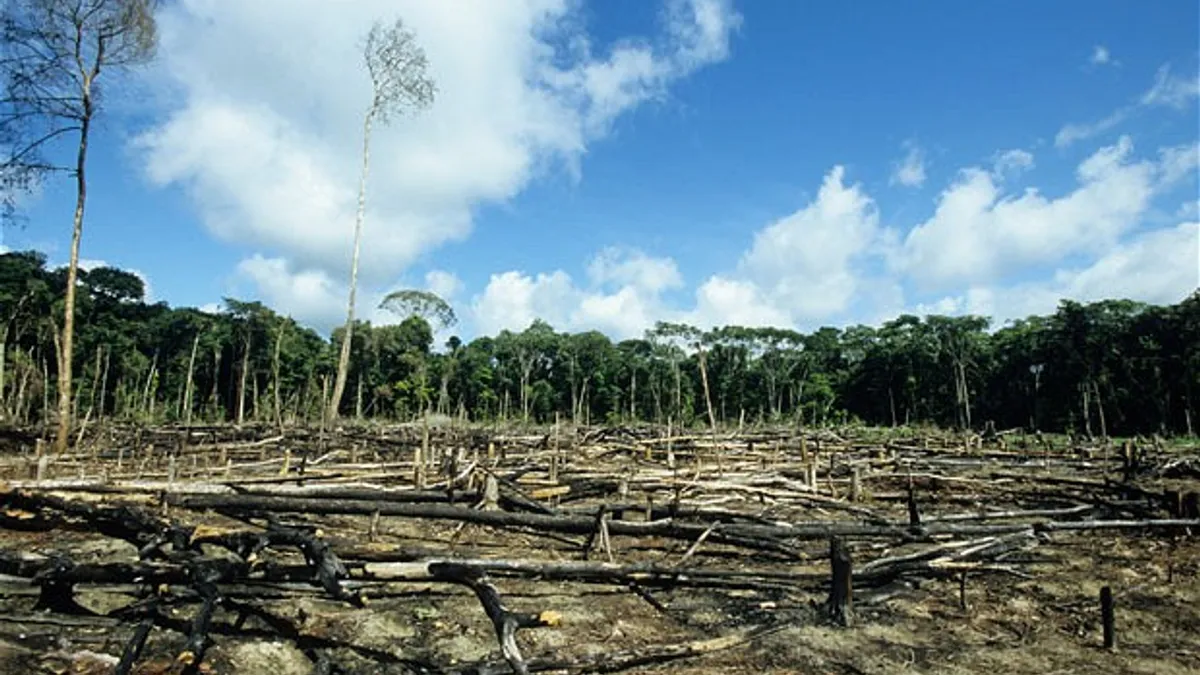Dive Brief:
- Cargill wants to achieve deforestation-free supply chains by 2030 by implementing a set of land-use guidelines for suppliers, gaining greater visibility into the origin of goods, and determining what percentage of its current supply chain complies with these goals, according to the company's updated Forest Policy and a company press release.
- "The Cargill supply chains that pose a risk to deforestation are primarily palm, soy and cocoa," April Nelson, a spokesperson for Cargill, told Supply Chain Dive in an email. "There are various means to monitor for deforestation from on-the-ground fieldwork, utilizing certification programs, industry collaborations, satellite-based technologies for which we partner with [World Resources Institute], civil society reports and having an effective means for people to report issues."
- Cargill plans to work with suppliers in adopting these new policies, Nelson said. In palm production, Cargill allows suppliers to keep supplying a product if they make progress on an agreed plan; if no progress is made they cut ties. In soy production, suppliers found to be in violation of various government regulations or the company's policy are no longer eligible to be a supplier, Nelson said.
Dive Insight:
Cargill released three new policies this week that it says will help guide these efforts: a South America Sustainable Soy Policy, a Human Rights Commitment and an updated Forest Policy.
The company has been working to improve the traceability of palm and cocoa for a few years now. Cocoa production in Ghana is already 100% traceable, according to Nelson, and it expects the same of the Ivory Coast by 2020. There is more work to be done on palm where it is 96% traceable to mills and 55% traceable to plantations, she said.
Cargill's announcement of its soy policy means it wants to start taking similar steps within the soy supply. The company said it will release "a time-bound Action Plan" no later than June 15. The policy is intended to increase transparency, eliminate deforestation, promote "responsible production" and the rights of workers, according to the South America Sustainable Soy Policy.
This announcement of a sustainable soy policy comes two years after The New York Times published a piece highlighting "large-scale forest-clearing by Bolivian and Brazilian farmers who trade soybeans with Cargill," the report reads.
The investigation found one area in Brazil where Cargill operates saw more than 321,000 acres of deforestation between 2011 and 2015.
"If there’s something there, if it’s substantiated, we’ll do something about it," Cargill CEO David MacLennan told The New York Times in 2017. "If that’s accurate, it’s not acceptable."














